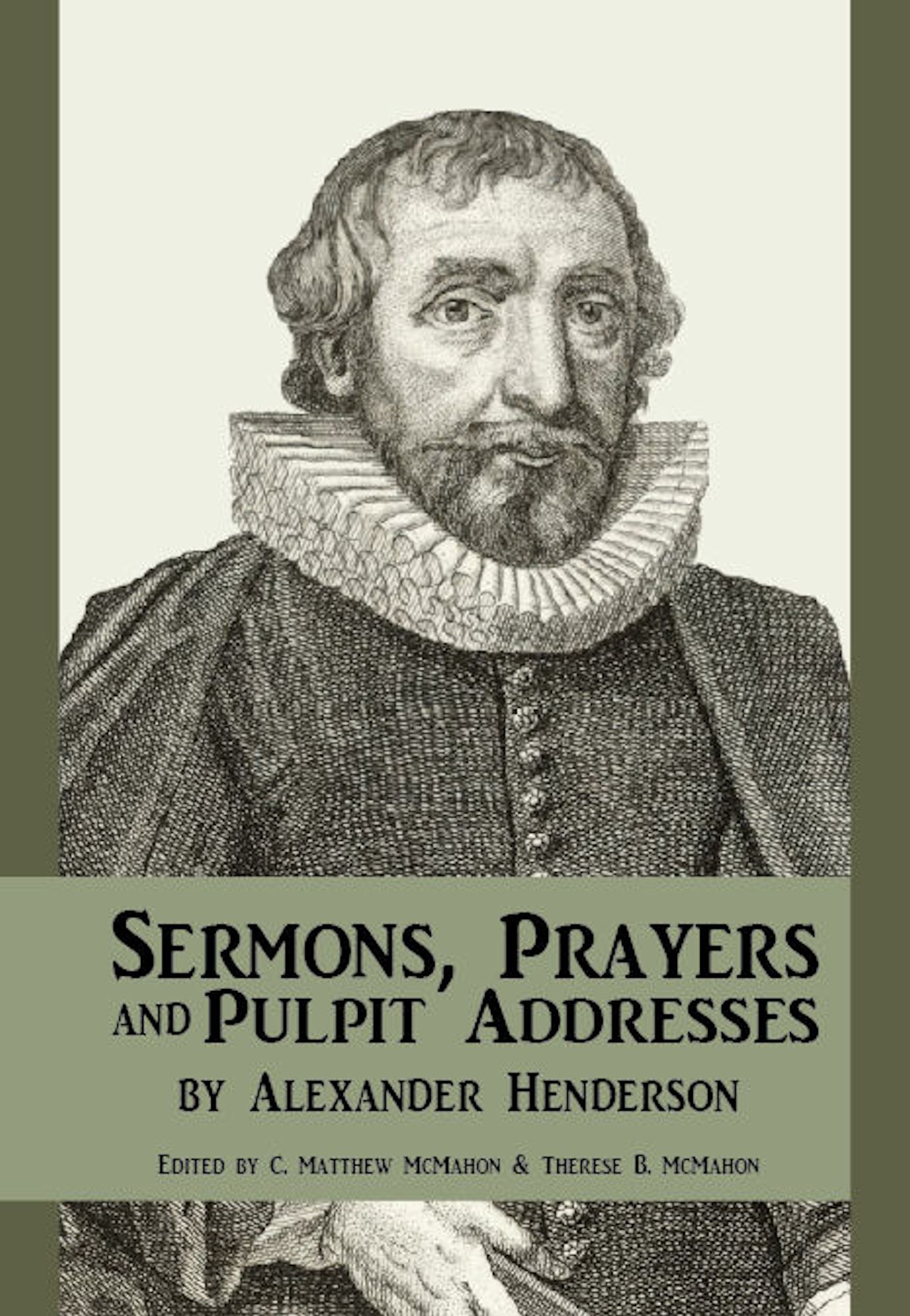Alexander Henderson (1583–1646)
Westminster Divine and Scottish Commissioner to the Assembly“The people of God did the work of God, building the Temple, the reformation of Religion, the ordering of the worship and service of God, and the fixing the walls which were ruined and lying in heaps. Their fasting and praying was not sufficient, they behoved to enter into Covenant. Their praying and Covenanting was not enough, nor were they to rest there, They behoved to build and reform. It has pleased God to put in your hearts, to give yourselves to frequent fasting and humiliation. Only consider, whether with the acknowledgment of your particular sins and personal transgressions, you have been humbled for public and National sins, and especially such as have been committed about the worship of God, and the Government of the house of God.”
His Works:
- Sermons, Prayers and Pulpit Addresses, (Updated) by Alexander Henderson
- A sermon preachd before the Right Honourable the Lords and Commons assembled in Parliament (1644) by Alexander Henderson
- A sermon preached before the Right Honourable House of Lords … Wednesday the 28. of May 1645 (1645) by Alexander Henderson
- A sermon preached by the Reverend Mr Alexander Henderson, before the sitting downe of the General Assembly (1682) by Alexander Henderson
- A sermon preached to the honourable House of Commons, at their late solemne fast, Wednesday, December 27. 1643 (1644) by Alexander Henderson
- Generall demands concerning the late covenant (1638) by Alexander Henderson
- Protestation of the noblemen, barrons, gentlemen, borrowes, ministers, and commons, subscribers of the confession of Faith and Covenant (1638) by Alexander Henderson
- Reformation of church-government in Scotland, cleered from some mistakes and prejudices, by the Commissioners (1644) by Alexander Henderson
- The answeres of some brethren of the minitserie, to the replyes of the ministers and professours of divinitie in Aberdene (1638) by Alexander Henderson
- The declaration of Mr. Alexander Henderson (1648) by Alexander Henderson
- The government and order of the Church of Scotland (1641) by Alexander Henderson
- The unlawfullnes and danger of limited prelacie, or Perpetuall presidencie in the Church, briefly discovered (1641) by Alexander Henderson
Biography of Alexander Henderson:
Alexander Henderson (1583-1646) was born in Creich, Fife, Scotland, in 1583. In 1603, he graduated from St. Andrews, with distinction. Afterward, he was appointed a regent there. In 1612, he was nearly prevented from assuming ministerial duties, at Leuchars, when the parishioners, fearing his unorthodoxy and attachment to episcopacy, secured the doors of the church building. Soon after, Henderson went secretly to hear Mr. Robert Bruce preaching nearby and was converted and renounced episcopacy as inconsistent with the principles of the Reformed Church of Scotland. He presided over a country parish for nearly 25 years in relative peace until the events of 1637. In 1637, Henderson was summoned to appear in Edinburgh, because he had failed to procure the prayer book imposed by Charles I., and there he emerged as a leader of the ecclesiastical resistance. It was there, he made a very spirited defense of his act of disobedience against the king’s imposition and gained national recognition. He was responsible for, and contributed to, the renewal of the National Covenant, in 1638, and was made moderator of the General Assembly in that year. When the English civil war began, he led many of the Scots to join the English Parliament in the conflict against the king. In 1643, he was instrumental in framing and taking the Solemn League and Covenant between the three kingdoms. The man whom some described as “the Second Reformer,” after John Knox, authored several tracts and sermons during his life, of which this is one of the most important. Others included “The Bishops’ Doom” and “Instructions for a Defensive Arms.” This bold defender of the divine right of Presbyterianism, and staunch Covenanter, died in Edinburgh, Scotland, August 19, 1646.




